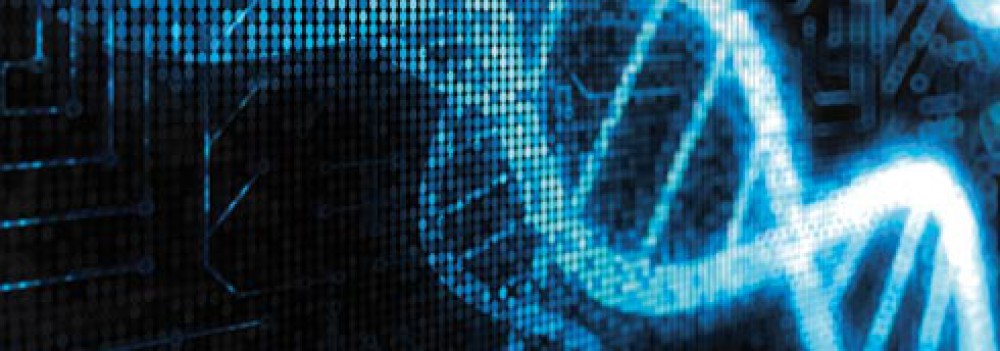Mauro Turrini Session 4 – Saturday Dec.13 – 9.30am-12.30pm
The emerging market of direct-to-consumer genetic testing (DTCGT hereafter) has been able to carve genetics out from the jurisdiction of the established medical institutions by creating direct links between providers and users. As a result, not only has the number of people with their genome sequenced and that of genetic traits discovered increased massively, but the services provided and the publics they are offered to have also been transformed in a radical way.
In particular, Internet has been used as a means to read, show, share, stock and mobilize genetic data. Even if these tests are not yet seen as creating clinically relevant information, they imply a number of knowledge practices regarding one’s own body and the predisposition to a number of diseases. Innovative forms of engagement with genetic research reconfigure the line between laboratory and society, experts and non-experts. Imagined futures of participatory medicine are crafted as projections of biological citizenship articulated around the active role of the genetic consumer. This variegated space is inhabited by a wide set of actors: personal genomics companies (e.g., 23andMe); academic initiatives (Personal Genomes Projects); scientific associations (Data and Body); small start-ups (Promethease, Genomera); and bio-hacking inspired initiatives (Open SNP, Genes Unzipped). The users’ availability of bio-data are seen as a form of clinical labour through which it is possible to conceive, take part in and construct the future of biomedicine.
Empirical materials from in-depth interviews with both DTCGT users and founders are used to analyze the different ways in which clinical labor is materially and discursively practiced and regulated in the principal on-line platforms. The involvement of the public in biomedical research, the different ways of accessing one’s own bio-data, the availability and ownership of personal genomic data and biomedical findings, the relationship between research and patients, and the reconfiguration of the normal and pathological are here considered as practical ways to imagine the biomedicine-to-come.
Pratiquer la biomédecine de demain : imaginaires médicaux et travail clinique autour des tests génétiques destinés aux consommateurs
Mauro Turrini Session 4 – Samedi 13 décembre – 9h30-12h30
Le marché émergent des tests génétiques destinés aux consommateurs (dénommés TeGALSI ci-après) est parvenu à faire sortir la génétique du domaine gardé des institutions médicales en tissant des liens directs entre les fournisseurs et les utilisateurs. Ainsi a-t-on pu constater une augmentation massive du nombre de personnes ayant leur génome séquencé et du nombre de traits génétiques ayant été découverts, mais aussi une transformation radicale des services fournis et des publics concernés.
En particulier, Internet a été utilisé comme un moyen de lire, d’afficher, de partager, de stocker et de mobiliser des données génétiques. Quand bien même ces tests ne sont pas encore considérés comme susceptibles de fournir des informations pertinentes sur le plan clinique, leur usage implique un certain nombre de pratiques liées aux savoirs sur le corps individuel et à la prédisposition à certaines maladies. Des formes innovatrices d’implication dans la recherche génétique redéfinissent ainsi les frontières entre le laboratoire et la société, mais aussi celles entre spécialistes et non-spécialistes.
Les scénarios de la médecine participative de demain sont pensés aujourd’hui comme des approches prospectives d’une citoyenneté biologique fondée sur le rôle actif joué par les consommateurs d’informations génétiques. Cet espace théorique aux multiples facettes est peuplé d’un grand nombre d’acteurs : entreprises de génomique personnelle (par ex. 23andMe) ; initiatives universitaires (Personal Genomes Projects) ; associations scientifiques (Data and Body) ; jeunes pousses (Promethease, Genomera) ; et autres initiatives inspirées par le bio-piratage (Open SNP, Genes Unzipped). La disponibilité des bio-données des utilisateurs est perçue comme une forme de concrétisation clinique qui participe de l’invention et de l’élaboration de la biomédecine de demain.
Les données empiriques constituées par des entretiens approfondis avec les concepteurs et les utilisateurs des TeGALSI seront utilisées pour analyser les différents aspects à travers lesquels le travail clinique est envisagé, tant sur le plan matériel que théorique, mais aussi comment celui-ci est réglementé sur les principales plateformes en ligne. La participation du public dans la recherche biomédicale, les différents moyens d’accéder aux bio-données individuelles, la disponibilité et la propriété des données génomiques personnelles ainsi que les résultats de la recherche biomédicale, sans oublier la relation entre la recherche et les patients ou la reconfiguration du normal et du pathologique, seront envisagés ici comme autant de moyens pratiques d’imaginer la biomédecine à venir.
